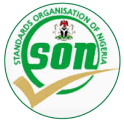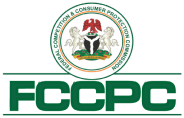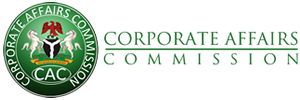OVERVIEW OF PMS DIRECTORATE
Post-marketing surveillance (PMS) is a crucial aspect of regulatory activities to ensure the availability of quality, wholesome regulated products for consumer use. PMS is a continuation of quality assurance and quality control even after GMP is properly carried out for consistency. This involves monitoring and evaluating the quality and by extension the safety and effectiveness of drugs, medical devices, food, and cosmetic products after they have been approved and made available for the public.
THE FOUR PMS DIRECTORATE DIVISIONS
- Drug & Medical Devices PMS Division
- Food PMS Division
- Good Distribution Practice (GDP) Division
- Cosmetic PMS Division
Drug & Medical Devices PMS Division
The division is saddled with the responsibility of monitoring and assessing the quality and by extension the safety and efficacy of drugs and medical devices after they have been approved and are available in the market for use by consumers. The division also responds promptly to consumer complaints as well as special investigations of public interest.
Food PMS Division
This division is responsible for monitoring and assessing the quality, safety, and wholesomeness of packaged foods, and water after regulatory authorization to ensure compliance with standard specifications (both international and National). In addition, the division monitors compliance with the Global Listing of Supermarket Items (GLSI) scheme. Furthermore, the division serves as the National desk for the Rapid Alert System for Food and Feeds (RASFF) to receive reports on border rejections and disseminate the information to different MDAs for necessary action.
Good Distribution Practice (GDP) Division
This division inspects the distribution, wholesale facilities, and warehouses of the importers, NGOs as well as the public distribution facilities for pharmaceuticals and other medical products. The unit ensures that the storage, holding, handling, and transportation of drugs and medical products comply with established standards to maintain product quality and integrity. The division through track and trace ensures that Substandard and Falsified products are prevented from entering the legal supply chain and when detected they are removed and responded to by sharing the information with the stakeholders and the public.
Cosmetic PMS Division
This division is responsible for monitoring and assessing the quality and safety of cosmetic products after regulatory authorization to ensure compliance with standard specifications (both international and National). Also, the division monitors the use of cosmetic products by the public and responds to wrong uses through sensitization and awareness creation. Also, the division in collaboration with other directorates and partners researched into cosmetic use and advised the government and the public.
FUNCTIONS OF PMS IN NAFDAC:
1. Product Quality Assurance and Control
- Monitors the quality of authorized regulated products in circulation in collaboration with MAHs through surveillance.
- Identify and address issues related to product quality, including contamination or substandard manufacturing and falsification.
- Attend to complaints submitted by consumers promptly to assure them of protection.
- Investigating alert notifications for appropriate regulatory actions.
2. Risk Assessment and Mitigation:
- Conduct risk assessments to evaluate potential safety concerns associated with authorized products in the market.
- Implement risk mitigation strategies, including labeling changes, restrictions, or recalls if necessary.
3. Communication and Education:
- Provide information to healthcare professionals, consumers, and the industry about product quality and by extension safety and regulatory actions.
- Educate stakeholders on the importance of reporting therapeutic failure and product quality concerns.
4. Collaboration with Stakeholders:
- Collaborate with healthcare professionals, industry stakeholders, and international regulatory bodies to share information and best practices.
- Engage in partnerships to enhance surveillance capabilities and data sharing.
- Collaboration with Development partners such as WHO, UNODC, USAID, BMGF, USP to research various surveillance aspects
5. Best System Practices
- Put in place structures and guidelines to guide standard practices in the supply chain system, especially for controlled and temperature-sensitive products.
- Inspect the activities of key players in the supply chain to ensure compliance with set laws and regulations and international best practices.
- Prevent, identify, and respond to substandard and falsified regulated products and protect consumers.
- Train regulators and practitioners on the laws and regulations for compliance.
6. Advertisement Monitoring
- Monitor Advertisements of NAFDAC-regulated products to ensure compliance with approved adverts.
- Collaborate with ABCON on advertisement.






